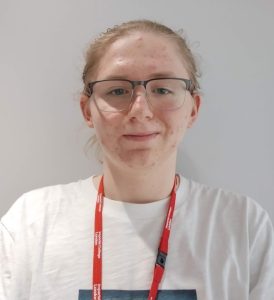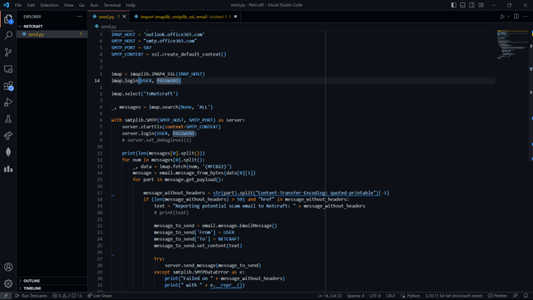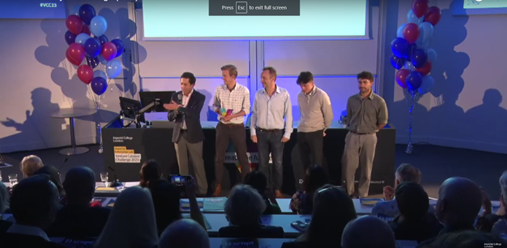 Hi, I’m Hamish; I’m from Watford, UK, and I’m a first-year student in Computing at Imperial. I like programming, Linear Algebra and modern foreign languages. I play water polo for IC 2s and hope to represent Imperial in Competitive Programming next year. Let’s connect on LinkedIn!
Hi, I’m Hamish; I’m from Watford, UK, and I’m a first-year student in Computing at Imperial. I like programming, Linear Algebra and modern foreign languages. I play water polo for IC 2s and hope to represent Imperial in Competitive Programming next year. Let’s connect on LinkedIn!
As is to be expected at this time of year, the Imperial exam season is well underway, which could be a source of worry for many students, whether fretting about achieving top marks or just hoping to pass onto next year. Therefore, I think now is a great time to take a break from revision and share my top n reasons to be happy in DoC. Writing this in my room in Imperial’s Kemp Porter Buildings I feel genuinely overcome with positivity, so why is that? Let’s dive in:
The primary reason I’m cheerful is, indeed, the primary reason to attend university: learning. Although, engulfed by the desire for a prestigious school, on applying I didn’t really focus on what I’d learn, I now derive great satisfaction from knowing so much that I didn’t know last year. Thanks to Dr Chiraag Lala’s incredible enthusiasm in Linear Algebra, I can now understand Google’s original PageRank paper; thanks to Architecture with Professor Wayne Luk and Dr Maria Valera-Espina, I now reckon I could build a computer from scratch; and thanks to our Computing Practical module I’ve discovered programming paradigms galore!
Indeed, as programmers, we can all be proud of the power we wield through software. Recently I found myself with a large swathe of junk email to report to Netcraft (a DoCSoc sponsor offering rewards for reporting scams), so I set about writing a script to retrieve the mail via IMAP, forward it via SMTP, and finally delete it. Although, as our favourite comic xkcd suggests, automation doesn’t always save as much time as we’d hope, watching the emails disappear progressively from my inbox was extremely satisfying.

Saving time is one reason why programming makes me happy; another is the power to do things you couldn’t otherwise do. Introduction to Databases (with Dr Peter McBrien) showed me relational algebra, Datalog, ER modelling and concurrency control, but I was most impressed by the SQL skills we learnt. Seeing the results of my meticulously crafted query to count full, observer and other members of international organisations for a past paper, I was surprised to feel a sense of power in manipulating the data exactly how I wanted (or at least, how the question wanted!), and getting answers to real data questions that I couldn’t before.
Other than academically, why should we be content as Imperial computer scientists? An obvious reason is that London is surely the world’s best city to live, work and study. Although it’s conspicuously cloudy as I look out the window, this month we’ve enjoyed plenty of sunshine. We also recently learnt that London topped the Best Student City rankings for the fifth year in a row. Career prospects are another facet which fills me with excitement. Watching Imperial Enterprise’s VCC final yesterday I was overwhelmed by some incredible startups coming out of our university. From sustainable RFID tags to AI Patent Attorneys, I’m delighted that Imperial is still a world-class centre for innovation.

The final reason to be happy right now, perhaps cornily, is you! By that I mean our computing community. This year I’m thankful to have made friends and just felt “included” throughout. Testament to the success of this community is the thriving EdStem forum for questions about modules. With 16 Q&As this week alone, I can see we are all invested in helping each other learn and succeed.
If you’re in DoC, I hope this gives you reason to be motivated to finish off those exams, and if not, reason to explore Imperial further!
Now, if you’ll excuse me, I must return to revising Graphs